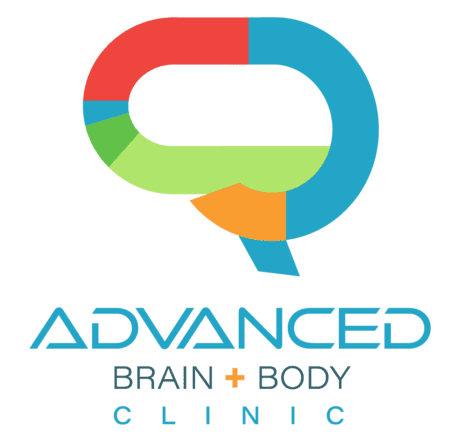Transcranial Magnetic Stimulation (TMS) is the most passive yet one of the most effective treatments available for depression, anxiety, PTSD, OCD, and schizophrenia. Our psychiatric providers often recommend TMS to patients for a variety of reasons, but patients are often hesitant to give it a try because of the common misconceptions listed below.
Our team has fact-checked the eight most common misconceptions about TMS therapy for depression and other mental health conditions. If you are considering TMS for your mental health condition, give us a call to schedule an initial consultation at our Minneapolis psychiatry clinic.
Misconception #1:
“TMS is another name for shock-therapy”
Fact:
TMS therapy for depression is a completely different treatment than ECT, or what many people refer to as ‘shock-therapy’. Both treatments are effective for treatment-resistant depression (TRD), and are completed over a series of several weeks, but that is where the similarities end.
While ECT is still the most effective treatment for TRD, ECT triggers a controlled seizure by passing a small electrical current through the brain. General anesthesia is necessary for this procedure, and side effects may include memory loss or confusion.
TMS is a significantly gentler treatment that does not require sedation. TMS machines use electromagnetic pulses (similar to an MRI machine) to target only the areas of the brain involved in mood regulation. No other areas of the body are affected by TMS treatment. After each treatment session, patients may resume their usual activities, including driving and returning to work.
Misconception #2:
“TMS relieves depression immediately.”
Fact:
TMS therapy is not intended to offer immediate relief from depressive symptoms. While some patients may report an improvement in their symptoms within the first week, most patients will begin noticing improvements within 3-4 weeks of their first treatment. This timeline for improvements is similar to what you can expect with trying a new antidepressant medication.
Although TMS does not relieve depression immediately, it is often used in combination with ketamine/esketamine (Spravato) or other treatments for patients with suicidal thoughts who need immediate relief.
Misconception #3:
“TMS is painful.”
Fact:
TMS treatments consist of small electromagnetic pulses that are administered through a figure 8 coil. Your TMS provider positions the coil to rest lightly on your scalp. While the TMS machine is turned on, you will hear a clicking sound and feel a tapping sensation on your scalp, however it should not be painful. Patients have described TMS as “a tiny woodpecker” or similar to “a TENS unit on my head”.
If at any point your TMS treatment becomes painful, notify your TMS technician, and they will make adjustments to make your experience more comfortable. Side effects such as headaches or scalp discomfort are typically mild and dissipate quickly after the TMS machine is turned off. In some cases, patients may need a good night’s rest to completely relieve their side effects.
Misconception #4:
“TMS cannot be combined with medications.”
Fact:
Most medications are safe to take while you are receiving TMS therapy for depression. The only exception is medications that lower seizure thresholds, such as Wellbutrin.
Patients are urged to abstain from street drugs and alcohol during the course of their treatment since those also carry the risk of lowering their seizure threshold.
Misconception #5:
“TMS is new and unproven.”
Fact:
The technology behind TMS dates to the 1980s and has been FDA-approved for severe depression since 2008 after many studies proved that it is a safe and effective treatment. TMS is also FDA-approved for OCD and smoking cessation. Tens of thousands of patients have been successfully treated with TMS.
TMS is one of the safest mental health treatments on the market. It is safe for pregnant patients and was even recently FDA-approved for adolescents ages 15 and older.
Misconception #6:
“TMS is expensive.”
Fact:
For most patients, TMS therapy is covered by insurance, making it more financially feasible than other treatments for treatment-resistant depression such as ketamine. Most insurance companies will cover all or part of the cost of TMS treatments due to their low risk and high success rate.
We accept many major insurance plans including Medicare Part B with a qualifying secondary insurance or supplemental plan. If you have Medicare, read our blog ‘Does Medicare cover Transcranial Magnetic Stimulation?’ for more details.
Misconception #7:
“TMS is too time-consuming.”
Fact:
It is true that TMS is administered over the course of several weeks. However, most appointments are only 30 minutes and do not require any prep work or recovery time after the treatment session. Your Golden Valley TMS provider will do everything possible to accommodate work schedules, school pick-up/drop-off times, and other appointments.
Unlike depression medications, TMS provides lasting depression relief for most patients. In the long-run, patients often end up saving time compared to daily antidepressant medications which may need to be adjusted over time or that cannot be combined with medications that need to be taken for other health conditions you may develop over your lifespan.
Misconception #8:
“TMS can alter my personality or make me lose my memory.”
Fact:
While these side effects are possible with ECT, TMS has not been associated with memory loss or personality changes.
TMS targets a very small area of the brain that is underactive in patients with chronic depression. This treatment is very mild, and the intensity of the treatment is carefully monitored. The areas of the brain responsible for processing and storing memories are out of range of the pulses, leaving them unimpacted by TMS treatment. This is also true for concerns about TMS therapy for depression altering a patient’s personality.
TMS is a safe and effective treatment option for most patients with depression, anxiety, PTSD, OCD, and schizophrenia. If you have not yet spoken to a mental health provider to see if TMS is right for you, give us a call to schedule an initial appointment with one of our mental health providers in Golden Valley, MN.
If TMS is not right for you, Advanced Brain and Body Clinic offers a full spectrum of psychiatric interventions, including innovative treatment options. Our team is here to help you find the right fit for your psychiatric needs.

Stephen Manlove, MD graduated from the University of Minnesota Medical School and completed residencies in Psychiatry and Internal Medicine through the University of Virginia Medical School. He holds multiple board certifications in psychiatry/neurology, internal medicine and forensic psychiatry. This deep understanding of medicine gives him a unique ability to practice truly holistic psychiatry—fusing lifestyle changes and brain health best practices with genetic testing and a detailed laboratory workup to develop a personalized plan for each patient. As an early adopter of transcranial magnetic stimulation (TMS) and ketamine/Spravato, he and the Advanced Brain + Body team have helped thousands of patients suffering from treatment resistant depression, anxiety and PTSD.

